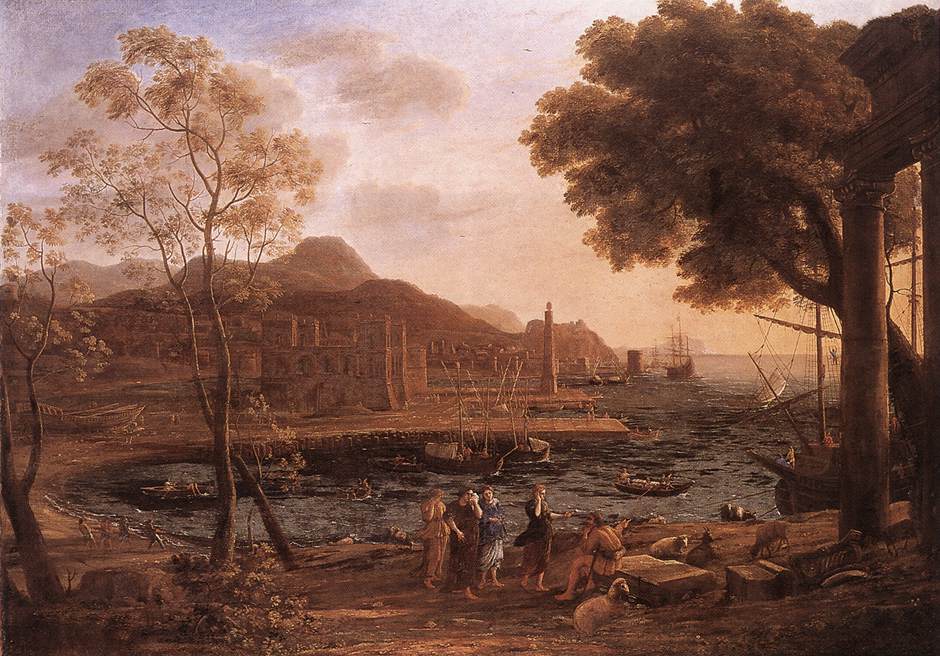Description
Painting Harbor Scene with Grieving Heliades by Claude Lorrain is a work of art noted for its artistic style, composition, and use of color. This masterpiece depicts a harbor scene against a dramatic backdrop of a stormy sky. The painting is characterized by its meticulous attention to detail and its ability to capture light and shadow in the scene.
The composition of the painting is impressive, with a large number of elements arranged in a harmonious scene. The image is divided into three main sections: the port, the sea and the sky. Perspective is used effectively to create depth and give a sense of space and movement in the scene.
The use of color in the painting is remarkable. The color palette is rich and varied, and is used to create a sense of light and shadow in the scene. Warm and cool tones are skillfully mixed to create a sense of tension and emotion in the work.
The story behind the painting is fascinating. The work depicts the Heliades, the daughters of the sun god Helios, weeping for their brother Phaeton, who died after attempting to drive the chariot of the sun. The scene is set in the port where Phaeton's body was recovered from the sea.
One of the lesser known aspects of this painting is that it was inspired by an earlier work by Lorrain, Landscape with the Finding of Moses, which also features a port scene. The painting is currently on display at the National Gallery in London and is considered one of the masterpieces of Italian Baroque art.
In short, Claude Lorrain's Harbor Scene with Grieving Heliades painting is a stunning work of art that combines exceptional artistic style, harmonious composition, masterful use of color, and a fascinating story. This painting is a display of Lorrain's talent and skill as an artist and is a jewel of Italian Baroque art.

